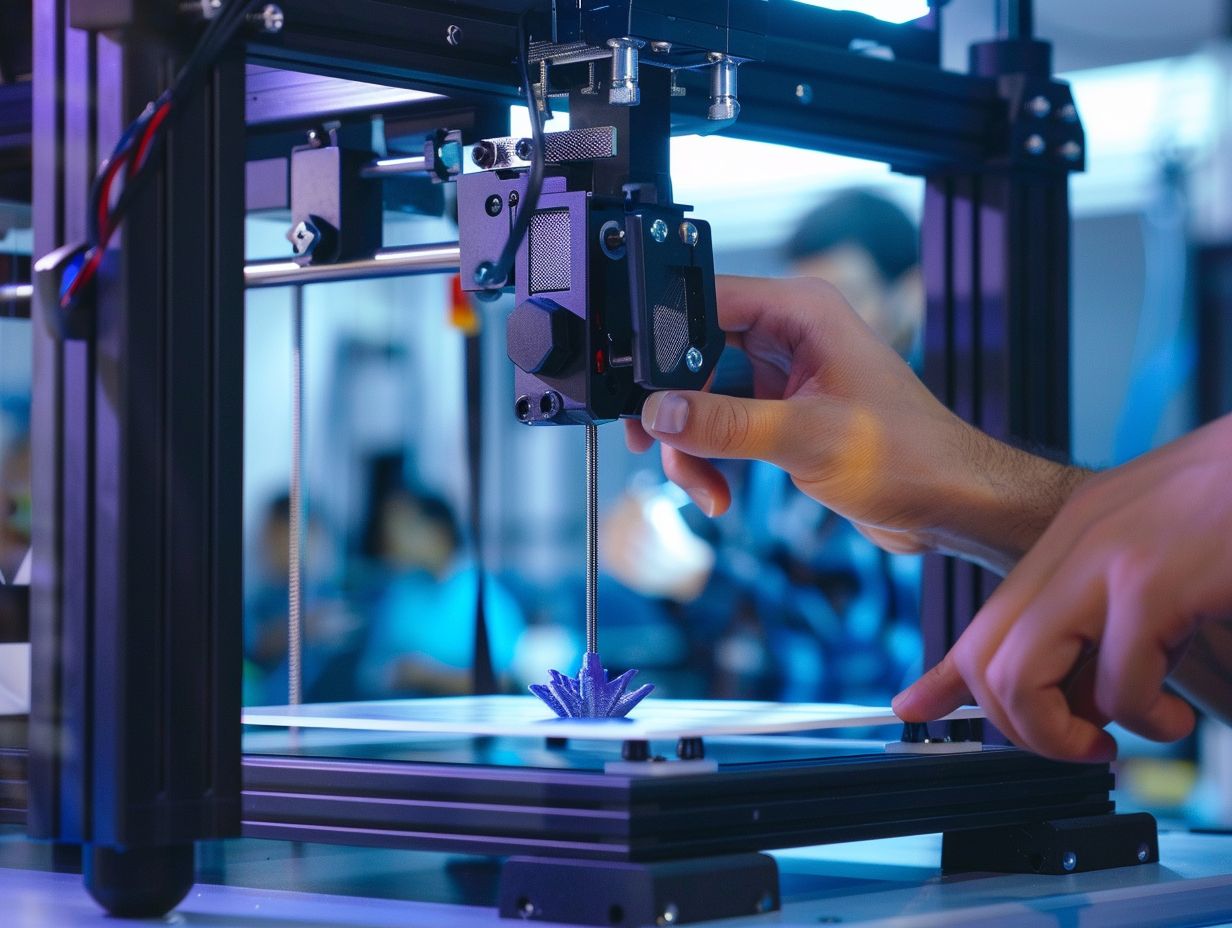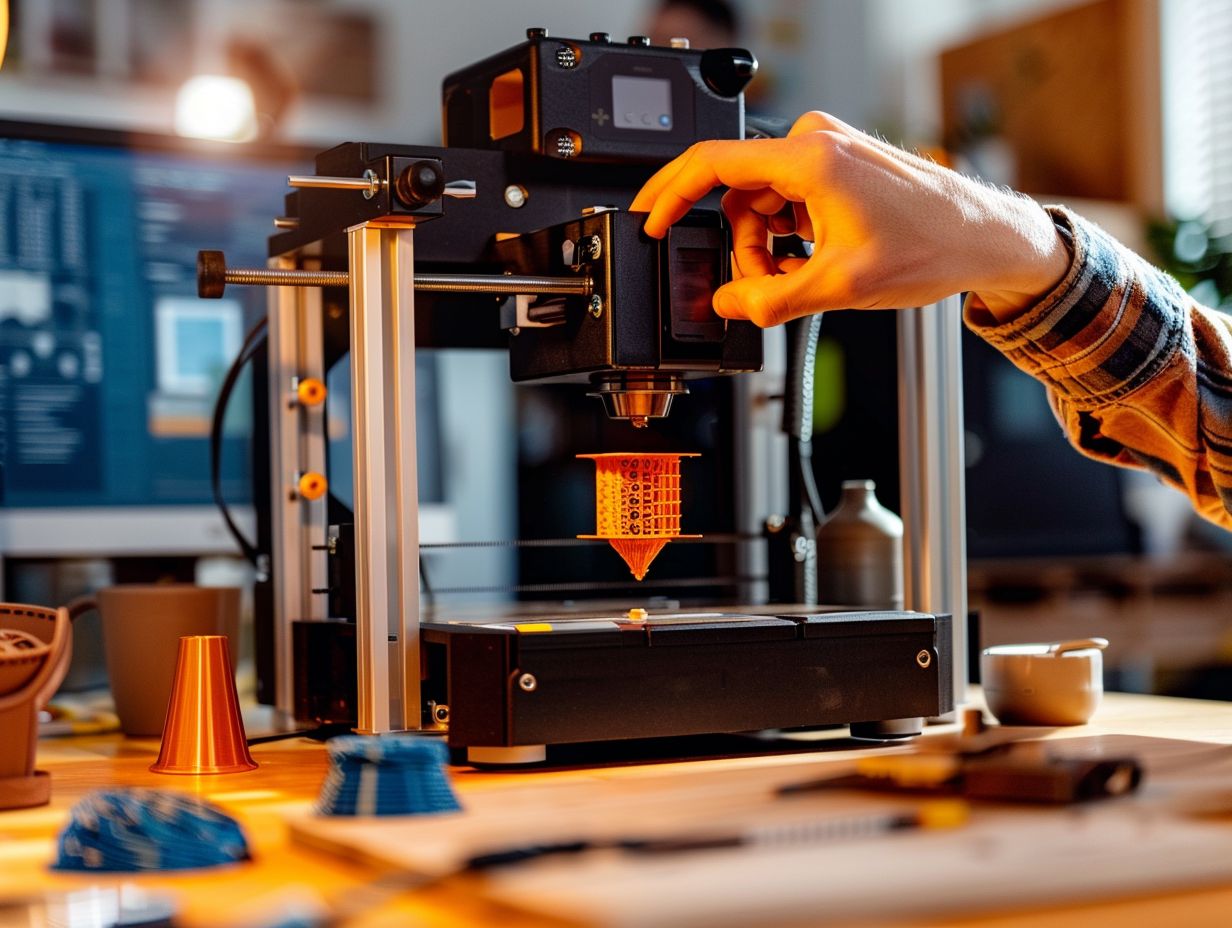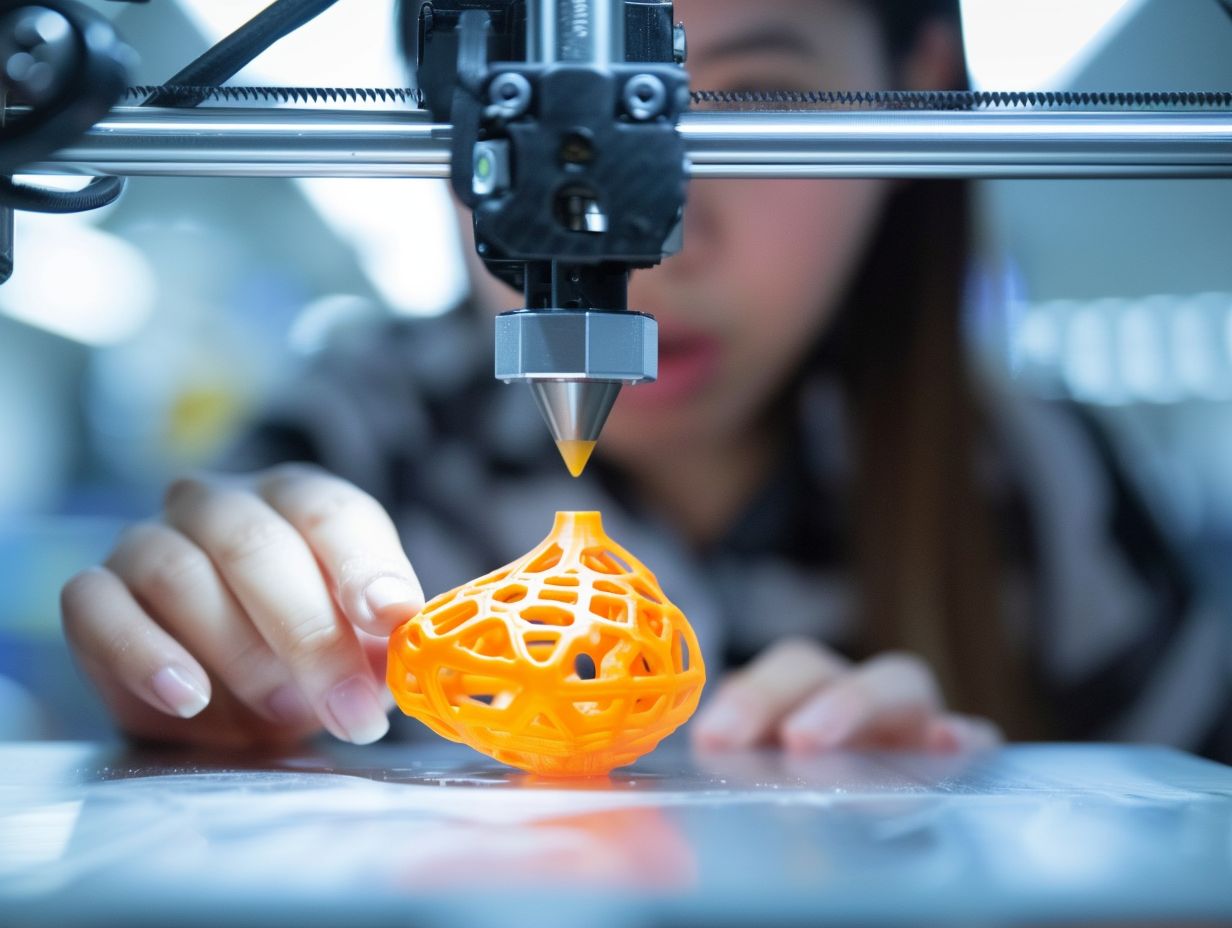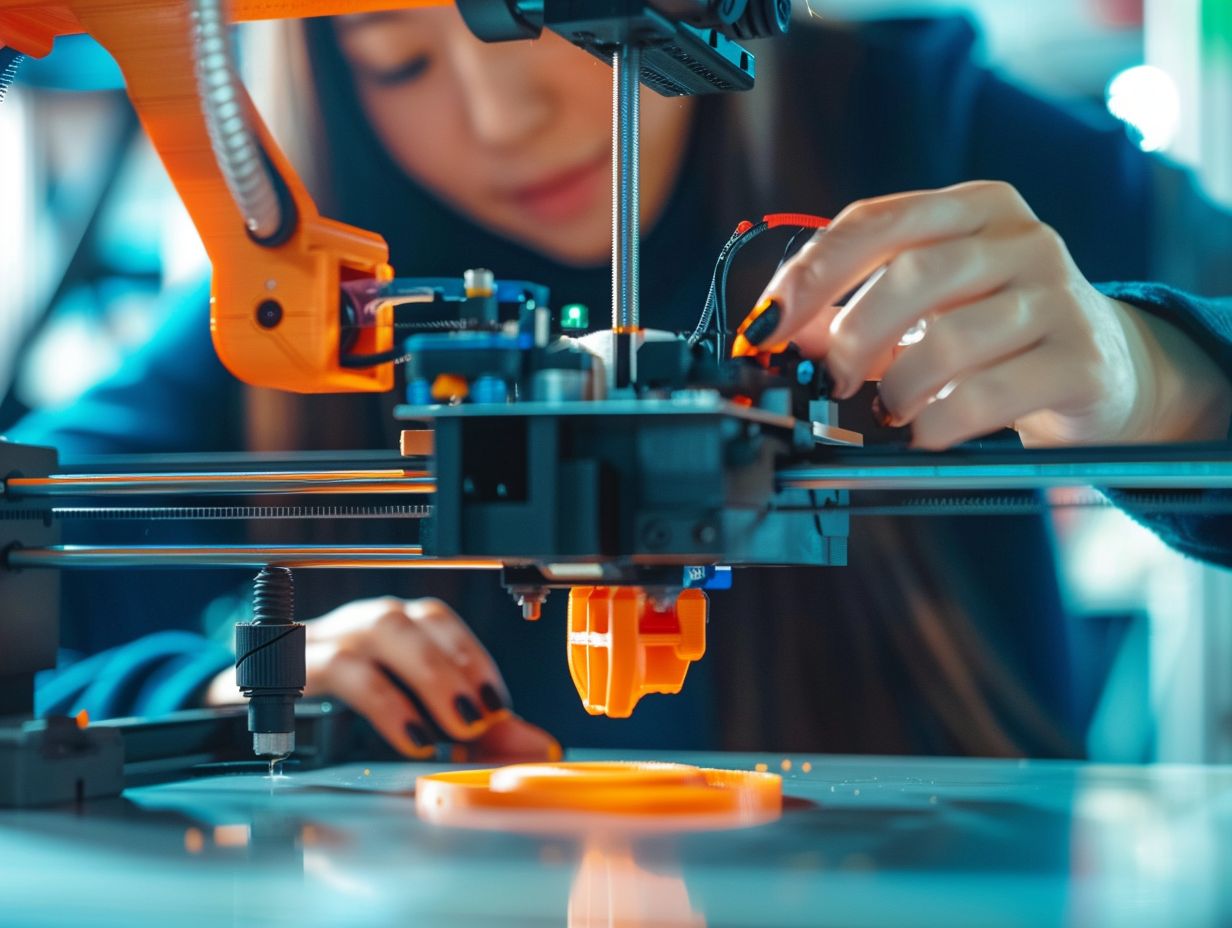Curious about the world of 3D printing and how it can enhance your career opportunities? Look no further.
Explore the benefits of acquiring 3D printing certifications, such as expanding your career options and staying current with industry advancements. Gain insight into CompTIA’s 3D printing certifications, the certifications available, and the prerequisites. Learn how to prepare for certification exams with study materials and resources.
Uncover the advantages of becoming a specialist in additive manufacturing, including career prospects, earning potential, and the industry’s expansion and demand for certified professionals. Delve into the dynamic realm of 3D printing certifications with our guidance!
Key Takeaways:

What is 3D Printing and How Does it Work?
In the realm of manufacturing, 3D Printing, or Additive Manufacturing, stands as a cutting-edge process that fabricates three-dimensional objects layer by layer with the aid of a 3D printer. This advanced technique involves the transformation of digital models into tangible products by systematically depositing materials to form successive layers.
As an individual handling 3D printers, your role is pivotal in ensuring the proper operation of the machinery. Your responsibilities encompass the correct setup of the equipment, meticulous monitoring of the printing process, equipment maintenance, troubleshooting of any technical glitches, and fine-tuning of settings to achieve optimal outcomes. The additive manufacturing approach, with its layer-by-layer material deposition, enables the realization of intricate and elaborate designs. This method facilitates the utilization of an array of materials, including plastics, metals, and ceramics, to construct a diverse range of products.
Benefits of 3D Printing Certifications
Acquiring 3D Printing Certifications provides a multitude of advantages for technicians, professionals, and individuals seeking to augment their skills and knowledge in the swiftly expanding additive manufacturing sector.
Enhancing Career Opportunities
Obtaining a 3D Printing Certification can greatly expand career opportunities for technicians, particularly in industries such as automotive, aerospace, and medical equipment manufacturing.
These certifications serve to validate an individual’s proficiency in operating 3D printers, utilizing design software, and troubleshooting common issues – skills that are highly sought after in today’s competitive job market.
Certified technicians specializing in 3D printing are not only in high demand but also have the opportunity to explore various career paths within the automotive and aerospace sectors, where the use of additive manufacturing is rapidly advancing. This specialized training paves the way for roles like additive manufacturing engineers, prototyping specialists, and materials scientists, providing a pathway to a fulfilling and lucrative career.
Keeping Up with Industry Advancements

Staying updated with the latest industry advancements is crucial for technicians in the field of 3D Printing. Certifications provide a structured way for you to acquire knowledge about cutting-edge technologies and processes.
Continuous learning ensures that you are equipped with the most up-to-date skills and expertise needed to excel in your role. Through certifications, you can delve into specialized areas like additive manufacturing, materials science, and design optimization, keeping you ahead of the curve in a dynamic field like 3D Printing. Staying current with industry trends enhances your problem-solving abilities, fosters innovation, and boosts your career prospects, making certified technicians like yourself highly sought after in a competitive market.
Overview of CompTIA’s 3D Printing Certifications
You can access a wide range of 3D Printing Certifications offered by CompTIA, specifically crafted to validate the competencies of professionals operating in the additive manufacturing sector. These certifications are structured to cover essential aspects of 3D Printing and hold significant esteem within the industry.
The certification exams facilitated by CompTIA are centered on evaluating proficiency in key areas such as 3D modeling software, materials science, printing processes, and troubleshooting techniques. By delving deep into these domains of knowledge, professionals can exhibit their capability in managing intricate 3D printing technologies effectively.
The intrinsic value of acquiring CompTIA’s 3D Printing Certifications extends beyond industry acknowledgment, encompassing the avenues they unlock for career progression and expansion opportunities within the swiftly evolving additive manufacturing landscape.
Available Certifications and Requirements
CompTIA offers a range of 3D Printing Certifications tailored to different skill levels and areas of expertise. Each certification level involves passing an exam that assesses professionals’ knowledge of the fundamentals of additive manufacturing.
The first certification level is the CompTIA Certified 3D Printing Specialist, ideal for novices seeking to understand the basics of 3D printing technology. Progressing to the next level, the CompTIA Certified 3D Printing Professional certification is aimed at individuals with a more profound understanding of software tools and design processes.
For advanced practitioners showcasing expertise in areas such as material properties and quality control, there is the CompTIA Certified 3D Printing Expert certification. These certifications act as important validations, confirming professionals’ abilities and expertise in the fast-evolving realm of 3D printing technology.
Preparing for the Certification Exams
Preparing for 3D Printing Certification Exams necessitates diligent study and practice utilizing a diverse array of resources and study materials. Aspiring students aiming for certification should concentrate on comprehending the fundamental concepts of additive manufacturing.
Study Materials and Resources

When preparing for 3D Printing Certification exams, you can leverage a range of study materials and resources like textbooks, online courses, and practical workshops to improve your knowledge and skills in additive manufacturing. By utilizing a combination of traditional and digital resources, you can develop a comprehensive understanding of the complexities of 3D printing.
Textbooks such as ‘Additive Manufacturing Technologies‘ by Ian Gibson, online platforms like Coursera that provide courses on additive manufacturing, and hands-on training opportunities available through makerspaces or university labs offer a holistic approach to exam readiness. Accessing diverse study materials not only presents varying perspectives but also accommodates different learning styles, ensuring that you can effectively grasp the concepts.
Benefits of Becoming an Additive Manufacturing Expert
Becoming an expert in Additive Manufacturing opens doors to lucrative job opportunities with high earning potential, driven by the growing demand for certified professionals in the additive manufacturing industry.
Job Opportunities and Salary Potential
Professionals with expertise in Additive Manufacturing have access to a wide array of job opportunities spanning various industries. The competitive salaries offered in this field are a reflection of the industry’s growth trajectory and the value placed on specialized skills.
As Additive Manufacturing continues to transform sectors like aerospace, automotive, healthcare, and consumer goods, professionals specializing in this field can explore diverse career paths. These paths may include roles such as additive manufacturing engineers, materials specialists, research scientists, and process technicians.
The growth patterns observed in the Additive Manufacturing sector point towards an escalating demand for skilled professionals. This demand can, in turn, contribute towards an increase in average salaries for certified experts. Various factors such as pricing strategies, market demand for innovative products, and technological advancements collectively play a role in elevating the salary potential for individuals focusing on Additive Manufacturing.
Industry Growth and Demand for Certified Professionals
The Additive Manufacturing industry is currently experiencing notable growth, particularly within sectors such as automotive, aerospace, and medical equipment. This growth has led to an increased demand for certified professionals possessing specialized skills in 3D Printing.
The surge in demand for skilled professionals can be attributed directly to the industry’s rapid expansion. As more companies within the automotive, aerospace, and medical equipment sectors integrate additive manufacturing technologies, the necessity for individuals with expertise in designing, operating, and maintaining 3D printers becomes essential. Certified professionals play a vital role in upholding quality standards, fostering innovation, and pushing the boundaries of what is achievable within this dynamic field.
Frequently Asked Questions

What are CompTIA’s 3D Printing Certifications?
CompTIA’s 3D Printing Certifications are a set of certifications designed to validate the skills and knowledge of professionals in the field of additive manufacturing. These certifications cover various aspects of 3D printing, including design, development, maintenance, and integration.
What are the benefits of earning CompTIA’s 3D Printing Certifications?
Earning CompTIA’s 3D Printing Certifications can open up new career opportunities and demonstrate your expertise in the rapidly growing field of additive manufacturing. These certifications are recognized globally and can help you stand out in a competitive job market.
What topics are covered in CompTIA’s 3D Printing Certifications?
CompTIA’s 3D Printing Certifications cover a wide range of topics, including 3D printing technologies, materials, design principles, post-processing, troubleshooting, and safety. They also cover more advanced topics such as supply chain management, quality control, and business considerations for additive manufacturing.
Who should pursue CompTIA’s 3D Printing Certifications?
Anyone looking to start or advance their career in the field of 3D printing can benefit from earning CompTIA’s 3D Printing Certifications. This includes professionals in roles such as design engineers, technicians, project managers, and business owners. These certifications are also valuable for students and individuals looking to gain a competitive edge in the job market.
How do I prepare for CompTIA’s 3D Printing Certifications?
CompTIA offers a variety of resources to help you prepare for their 3D Printing Certifications, including study guides, practice exams, and training courses. It is also recommended to have hands-on experience with 3D printing technology and to stay updated on the latest developments in the industry.
Are there any prerequisites for CompTIA’s 3D Printing Certifications?
No, there are no prerequisites for CompTIA’s 3D Printing Certifications. However, it is recommended to have at least six months of experience working with 3D printing technology before attempting the exams.
